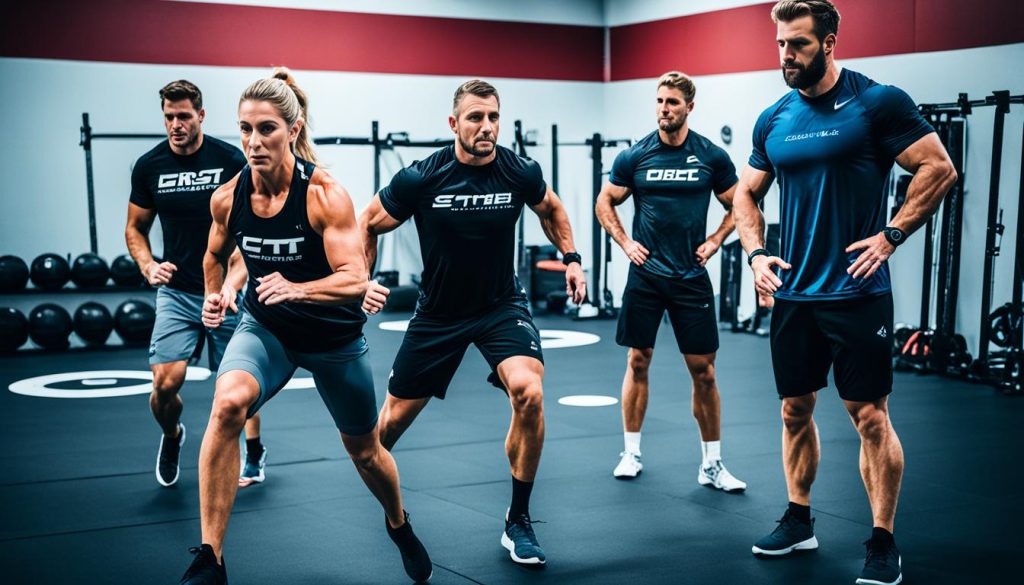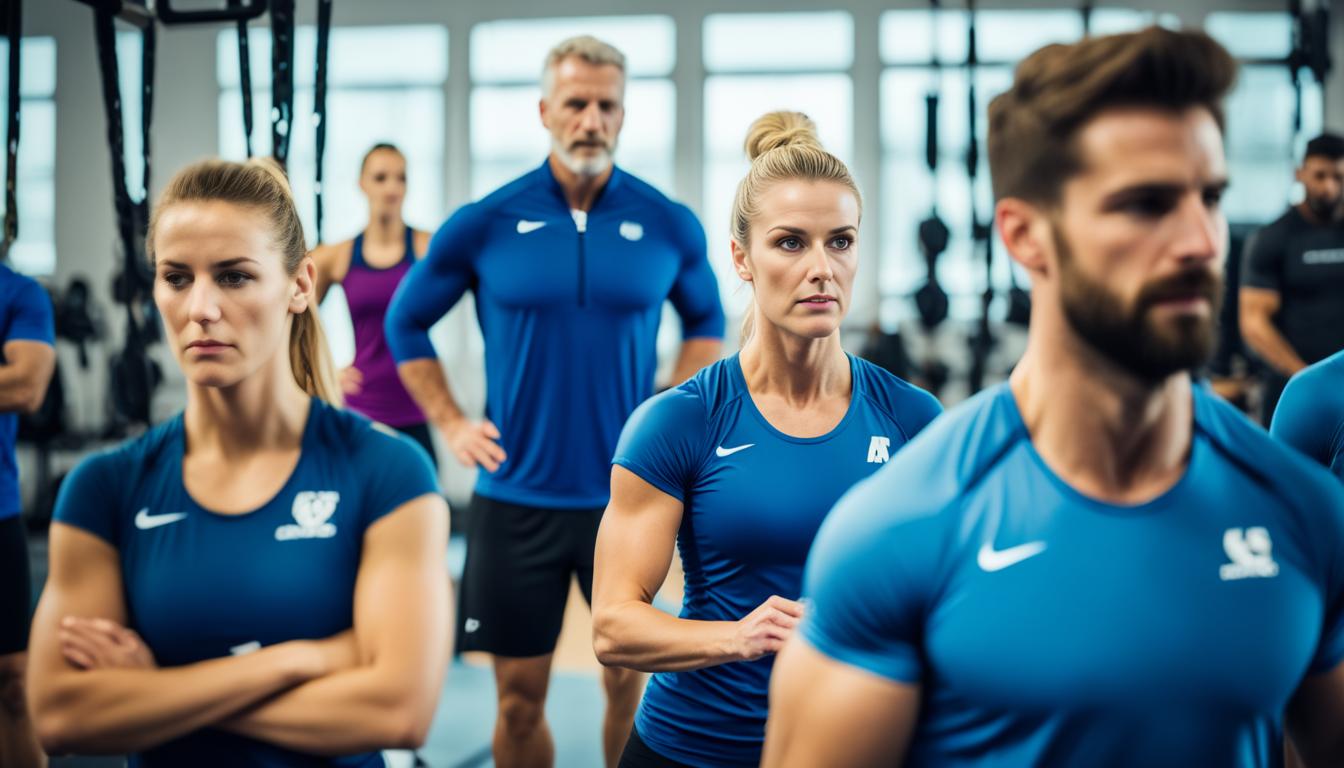As athletes and fitness enthusiasts, we’re constantly seeking ways to push the boundaries of our physical capabilities and achieve our goals. Whether you’re a professional athlete aiming for a coveted championship title or a passionate recreational sports enthusiast striving for personal bests, unlocking your full potential is no easy feat. Fortunately, you’re in the right place. This article will explore the latest training techniques and strategies used by top industry experts to help you unlock your athletic potential and take your performance to new heights.
Throughout this comprehensive guide, you’ll hear from renowned coaches, trainers, and sports scientists who have dedicated their careers to helping athletes of all levels optimize their training regimens. From fundamental strength and conditioning principles to cutting-edge movement and technique refinement strategies, we’ll cover a wide range of topics to ensure you have the knowledge and tools necessary to achieve your fitness aspirations, whether they involve competitive sports, recreational activities, or simply improving your overall well-being.
Key Takeaways
- Discover the latest training techniques and strategies used by top industry experts to unlock your athletic potential.
- Learn proven methods to enhance your sports performance, improve overall fitness, and achieve your fitness goals.
- Gain insights from renowned coaches, trainers, and sports scientists to optimize your training regimen.
- Explore the fundamental principles of sports training, including strength and conditioning, movement optimization, and technique refinement.
- Understand the importance of sports nutrition and recovery strategies for optimal performance and injury prevention.
Mastering the Fundamentals of Sports Training
In the realm of sports and athletics, the foundation of success lies in the mastery of fundamental training techniques. This section delves into the essential elements of sports training, equipping readers with the knowledge and strategies to build a solid framework for their athletic pursuits.
At the core of effective sports training are strength and conditioning principles. Industry experts emphasize the importance of developing physical attributes such as power, speed, and agility to enhance overall athletic performance. Through a comprehensive approach to strength training, plyometrics, and targeted conditioning exercises, athletes can cultivate the necessary physical capabilities to excel in their chosen sports and competitions.
Alongside physical development, the optimization of movement and technique is paramount. Fitness enthusiasts and athletes will learn from industry authorities how to refine their technical skills, whether it’s perfecting their form in weightlifting, honing their agility in team sports, or mastering the nuances of their individual athletic disciplines. By focusing on proper biomechanics and movement patterns, participants can minimize the risk of injury and maximize the efficiency of their sports performance.
Building a solid training foundation is crucial for athletes of all levels, from recreational fitness enthusiasts to elite sports professionals. This section will provide readers with the insights and strategies they need to cultivate the necessary physical attributes, technical proficiency, and overall readiness to excel in their chosen sports and leagues.

| Key Principles of Sports Training | Benefits |
|---|---|
| Strength and Conditioning | Develop power, speed, and agility for enhanced athletic performance |
| Movement Optimization | Refine technical skills and minimize injury risk through proper biomechanics |
| Comprehensive Training Approach | Build a solid foundation for success in various sports and competitions |
Sports Nutrition and Recovery
In the world of sports and athletics, proper nutrition and recovery strategies are essential for athletes to perform at their peak. Industry experts advise that by focusing on macronutrient balance, hydration, and targeted supplementation, athletes can fuel their bodies for optimal fitness, recreation, and game performance.
To maximize sports and athletic potential, experts recommend a balanced diet rich in complex carbohydrates, lean proteins, and healthy fats. This macronutrient balance helps to replenish energy stores, support muscle recovery, and maintain overall fitness and well-being. Proper hydration is also crucial, as dehydration can hinder athletic performance and contribute to burnout.
In addition to a well-rounded diet, industry leaders suggest the strategic use of supplements to enhance sports performance and accelerate recovery. Supplements such as protein powders, creatine, and electrolyte-rich drinks can help athletes meet their increased nutritional demands and support their training and competition goals.
Post-workout recovery is another critical component of the sports nutrition equation. Experts advise implementing techniques such as active recovery, foam rolling, and targeted stretching to help athletes mitigate the effects of muscle soreness and fatigue, ultimately enabling them to train harder and perform better in games and competitions.

By incorporating these sports nutrition and recovery strategies, athletes can unlock their full potential and achieve their desired fitness and athletic goals, whether they are competing at the professional or amateur level.
Conclusion
In conclusion, this article has provided a comprehensive guide to effective sports training techniques, drawing insights from industry experts to help readers unlock their athletic potential and achieve their fitness goals. By mastering the fundamentals of strength and conditioning, optimizing movement and technique, and implementing strategic sports nutrition and recovery strategies, athletes of all levels can elevate their performance and reach new heights in their chosen sports.
Whether you’re a professional athlete seeking to fine-tune your training regimen or an amateur enthusiast looking to take your fitness to the next level, the valuable information presented in this article can serve as a roadmap to success. By diligently applying the proven methods and advice shared by renowned coaches, trainers, and sports scientists, you can unlock your true athletic prowess and push the boundaries of what you thought possible.
Remember, the journey to athletic excellence is one of continuous learning and adaptation. By staying committed to your training, fueling your body with the right nutrients, and allowing for proper recovery, you can position yourself for long-term success and enjoy the thrill of witnessing your own personal growth and improvement. Embrace the challenges, celebrate your victories, and let this article be your guide to unlocking your full potential as an athlete.
FAQ
What are the key principles of effective sports training?
The key principles of effective sports training include progressive overload, specificity, individualization, and periodization. Implementing these principles can help athletes develop the necessary physical attributes, technical skills, and mental resilience to excel in their chosen sports.
How can athletes improve their strength and power for sports performance?
Athletes can improve their strength and power through compound exercises, plyometrics, and Olympic-style weightlifting. Incorporating these training methods, along with proper programming and recovery, can significantly enhance an athlete’s physical capabilities.
What role does nutrition play in sports performance?
Proper sports nutrition is crucial for athletic performance. Athletes need to focus on macronutrient balance, hydration, and strategic use of supplements to fuel their bodies for training, competition, and recovery. Consulting with a sports dietitian can help athletes develop a personalized nutrition plan.
How can athletes prevent overtraining and burnout?
To prevent overtraining and burnout, athletes should prioritize adequate rest and recovery, including proper sleep, active recovery techniques, and periodized training programs. Monitoring fatigue levels and adjusting training accordingly can help athletes avoid the negative consequences of overtraining.
What are the benefits of working with a sports performance coach?
Working with a sports performance coach can provide athletes with customized training programs, technical instruction, and accountability to help them reach their goals. Coaches can also offer expertise in areas such as sports psychology, biomechanics, and injury prevention.






